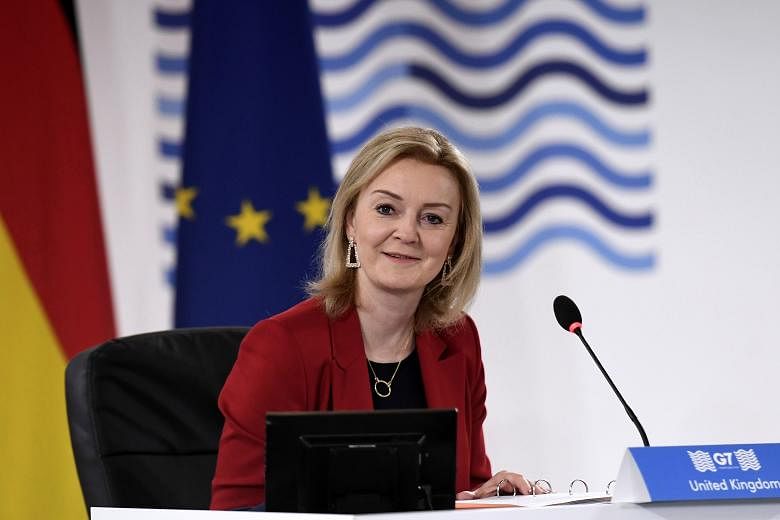LONDON (BLOOMBERG) - Foreign Secretary Liz Truss will handle Britain's post-Brexit negotiations with the European Union after Mr David Frost quit the role, adding even more powers to her brief and strengthening her position as one of the favourites to succeed Mr Boris Johnson as prime minister.
The appointment of one of the most popular Conservatives among the grassroots was announced in a statement on Saturday by Mr Johnson's office less than 24 hours after the shock resignation of Mr Frost.
The move consolidates Ms Truss' status as a potential future Tory leader, especially as Mr Johnson's star has plummeted.
After Mr Johnson, she is arguably the most powerful person in government next to Chancellor of the Exchequer Rishi Sunak, another name touted as future prime minister material.
Mr Johnson's quick move to fill the post with a Cabinet big-hitter underlines the importance he places on the role as Britain tries to reshape trading terms it agreed just a year ago with the bloc.
Ms Truss campaigned for "Remain" in the 2016 referendum, but has since embraced Brexit with the zeal of a convert. She now has the power, and Mr Johnson's ear, to shape Britain's relationship with its closest neighbours after a fractious divorce from the European Union.
If Brussels was hoping for a soft touch, Ms Truss would not be it. An ardent fan of Mrs Margaret Thatcher, both in her embrace of free markets and her disdain for the European Union, she operates within a party that has largely purged a lot of its europhiles.
At the top of Mr Truss' inbox in her new role will be to see through negotiations opened by Mr Frost with the EU to unpick trading arrangements between Northern Ireland and mainland Britain.
Under the so-called Northern Ireland Protocol, goods moving into the region from the rest of Britain are subject to customs checks if they may later be moved into the EU.
Britain is demanding changes to the accord, which the government says has inhibited trade between different parts of Britain's own single market.
The Foreign Secretary was promoted from the international trade portfolio to her current role in September, and is credited by party members with reaching a succession of rollover trade deals during her tenure in her old post.
Even after moving, she has said she sees trade as an extension of her new role in the Foreign Office and has overshadowed her successor in the trade department.

